8 min to read
How do you effectively segment your audience of your IVF clinic?
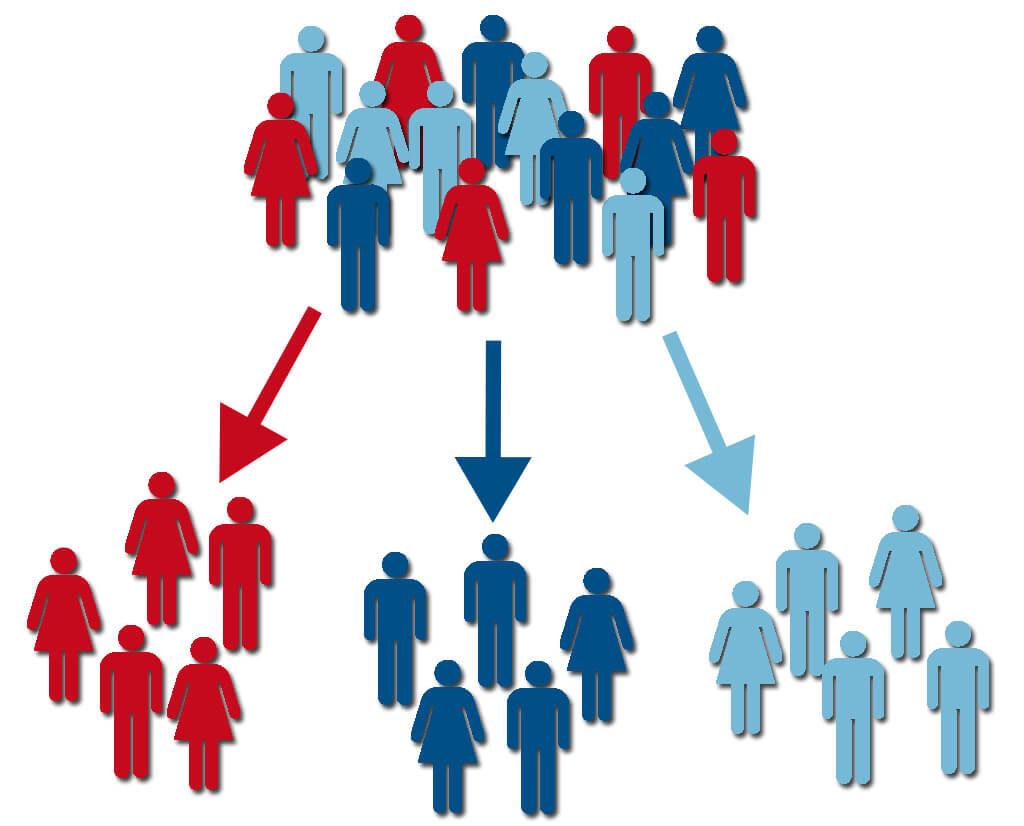
In today's rapidly evolving healthcare landscape, the In Vitro Fertilisation (IVF) market is experiencing significant growth, driven by increasing infertility rates, advancements in IVF technology, and the rising age of first-time mothers. One unique and crucial aspect that many may not fully appreciate is the profound impact of digital marketing on this sector. The digital landscape has become a major resource for IVF clinics and service providers to connect with potential clients. However, one thing that is often overlooked, is the importance of empathetic approach in your marketing within the IVF digital space.
The journey to parenthood through IVF can be emotionally taxing and fraught with uncertainty. Prospective parents want both technical information and also emotional support and reassurance. Clinics and service providers that leverage digital platforms to share success stories, patient testimonials, detailed process explanations, and supportive resources can significantly enhance their visibility and attractiveness to potential clients. For example, one of our clients has effectively used its website and social media channels to provide informative content, patient success stories, and detailed descriptions of their treatments and technologies. This approach educates potential clients and builds a sense of trust and emotional connection, which is critical in the decision-making process for couples considering IVF.
CodeDesign is a leading digital marketing agency ranked #1 in Lisbon, Portugal. You could work with us to accelerate your business growth.
Audience segmentation plays an important role
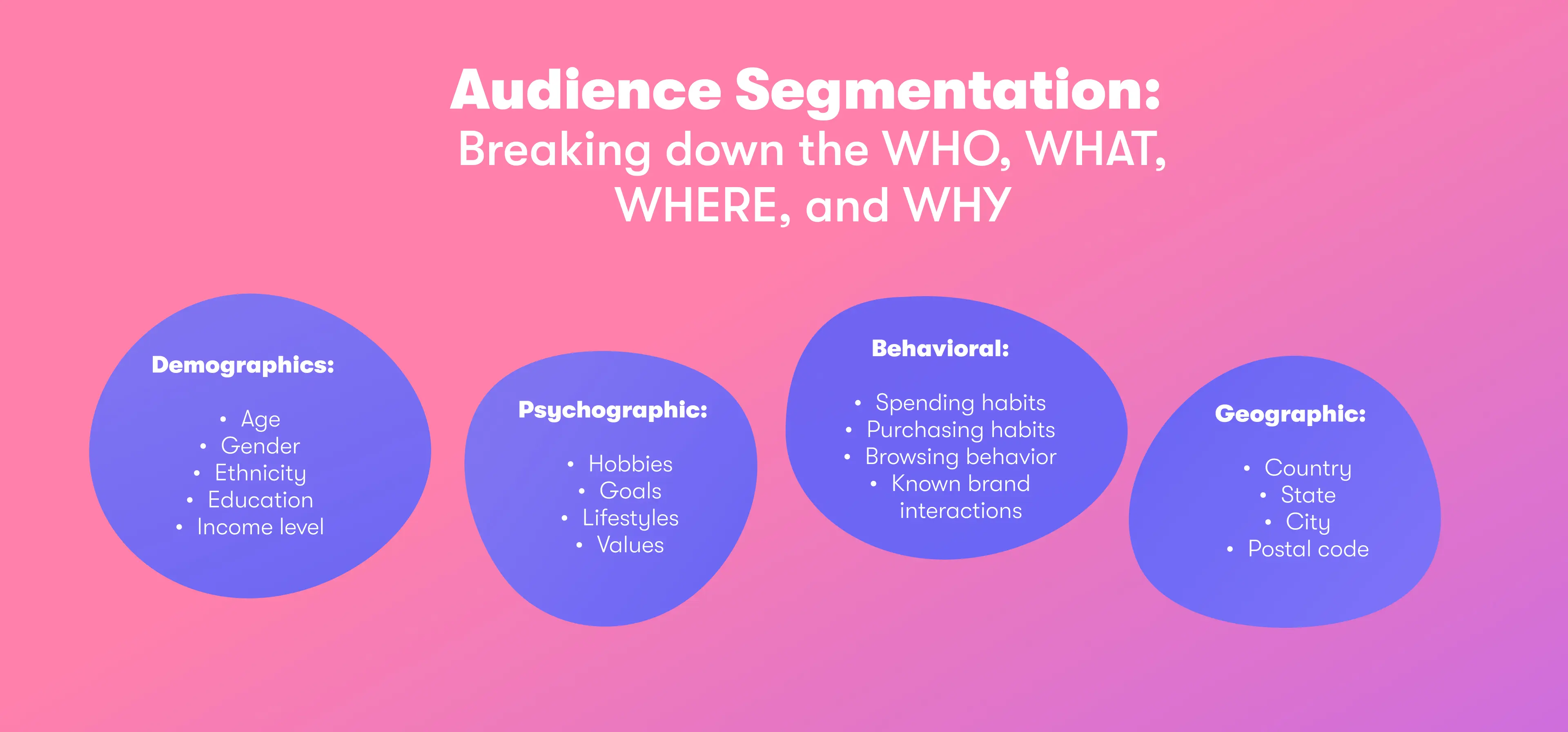
Understanding the audience is crucial in crafting effective digital marketing strategies for IVF providers because it allows you to provide personalised and resonant messaging that directly addresses the unique concerns, needs, and emotional states of potential patients.
One of the most impactful and less discussed aspects of audience understanding is the emotional journey of individuals or couples seeking IVF treatments. This journey is often marked by feelings of hope, frustration, desperation, and a deep desire for a positive outcome. Recognizing and empathising with these emotional states can guide IVF providers in tailoring their communication, making it more empathetic and supportive.
How to segment your audience in a way that helps you connect with them in the most personal manner?
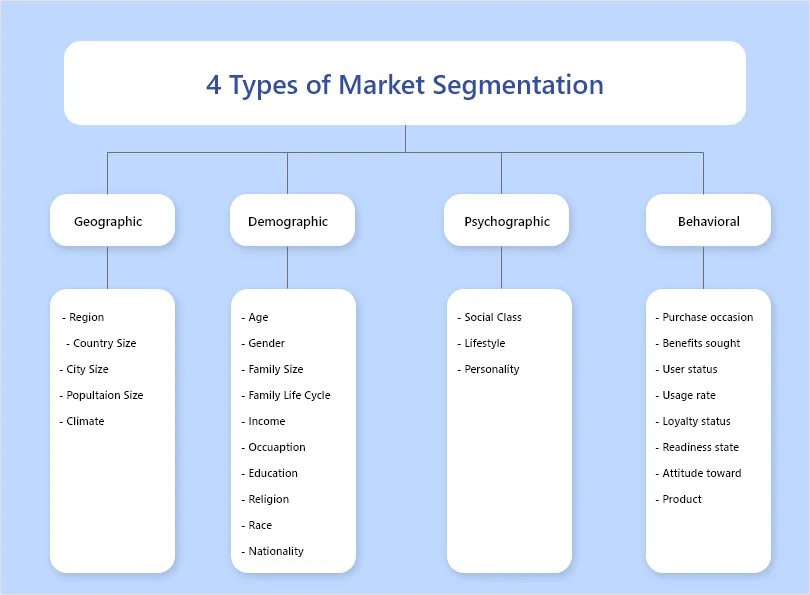
Segmentation involves dividing a broad target market into subsets of consumers with common needs, interests, or priorities. For IVF providers, effective segmentation can be achieved through multiple dimensions:
Demographic segmentation
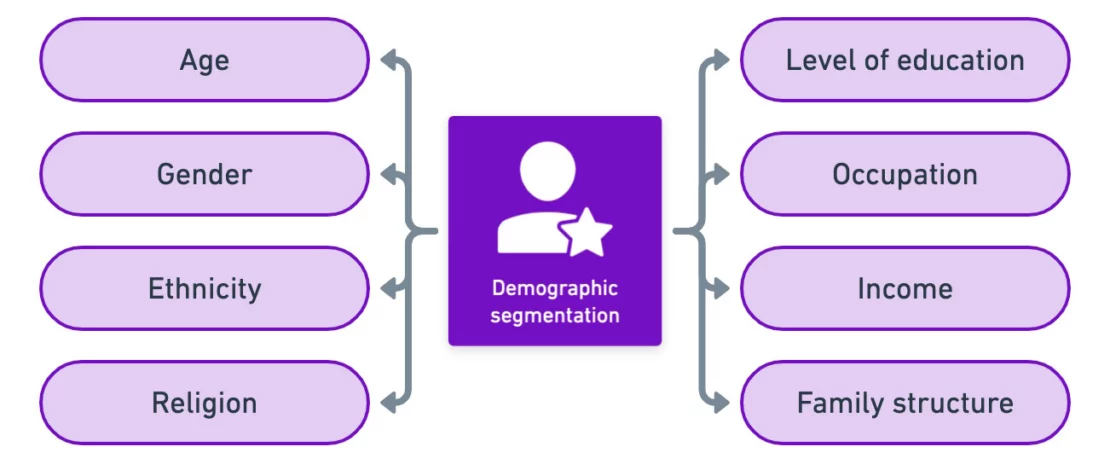
When we are planning a digital marketing strategy, demographic segmentation, such as focusing on age, gender, marital status, income level, and education, serves as a fundamental approach to understanding and reaching potential patients effectively. However, if we go down the rabbit hole within this framework, age stands out as particularly crucial for several reasons.
The fertility window is inherently linked to age, making it a critical factor in IVF marketing strategies. For instance, women in their late 20s to early 40s are more likely to seek IVF treatments due to the biological considerations associated with age and fertility. By targeting communications towards this age group, IVF providers can ensure that their messaging is reaching individuals who are most likely in the process of considering or needing fertility treatments.
At the same time, when you tailor digital marketing efforts to address the unique needs and situations of different age groups, it enhances the effectiveness of these campaigns. For example, younger couples may be at the early stages of exploring fertility options and require more educational content about the IVF process, success rates, and what to expect. On the other hand, older individuals or couples might be more focused on the urgency of treatment options due to a narrower fertility window, thus responding better to messaging that emphasises success rates, advanced technological options, and the possibility of using donor eggs or sperm.
Geographic Segmentation

Geographic segmentation is a pivotal aspect when it comes to the success of IVF clinics, and it goes beyond just the proximity of potential clients to the clinic. A standout example of this is the varying legal landscape across different regions, which significantly influences people's ability to access and choose IVF treatments. For instance, some countries or states have specific regulations that either restrict or allow certain IVF procedures, such as preimplantation genetic diagnosis (PGD) or the number of embryos that can be transferred during a single IVF cycle. This variance in legislation not only affects the demand for IVF treatments in different areas but also shapes the services that clinics need to offer to meet local regulations and patient needs.
Take, for example, Belgium and Italy. Belgium is known for its supportive legal framework around IVF treatments, including the coverage of costs for certain numbers of IVF cycles under its national health system. This not only makes IVF more accessible to residents but also attracts international patients seeking these treatments, showcasing how favourable regulations can enhance a clinic's appeal both locally and globally. In contrast, Italy has had a history of stricter regulations on assisted reproductive technologies, limiting certain procedures and affecting the choices available to individuals and couples.
How geographic segmentation would guide your digital marketing campaign?
Now when we know about the legal implications, let’s see how it would influence your overall campaign. Let’s assume that your clinic is located in a region with favourable IVF laws and advanced reproductive technologies. With this environment, you would have to create targeted digital ads that specifically highlight the availability and legality of certain procedures that might be restricted elsewhere, such as the use of donor eggs and sperm. By using geo targeting tools available through platforms like Google Ads or Facebook, your clinic can ensure these ads are only shown to users in specific locations where these messages resonate the most due to local laws and cultural acceptance of such treatments.
Furthermore, this targeted approach allows you to customise your messaging to address local concerns or interests. For example, in areas where there is a high level of awareness and acceptance of IVF treatments, your clinic's marketing can focus on their specific technological advancements, success rates, or patient care excellence. Conversely, in regions where IVF might be a newer concept or there are prevailing misconceptions, the content can be tailored to educate the audience about the safety, effectiveness, and ethical considerations of IVF treatments.
By adopting geographic segmentation in their digital marketing campaigns, you won’t just increase the relevance and effectiveness of your advertising efforts but also ensure that they are engaging with audiences in a manner that is sensitive and appropriate to the local context.
Psychographic and behavioural segmentation
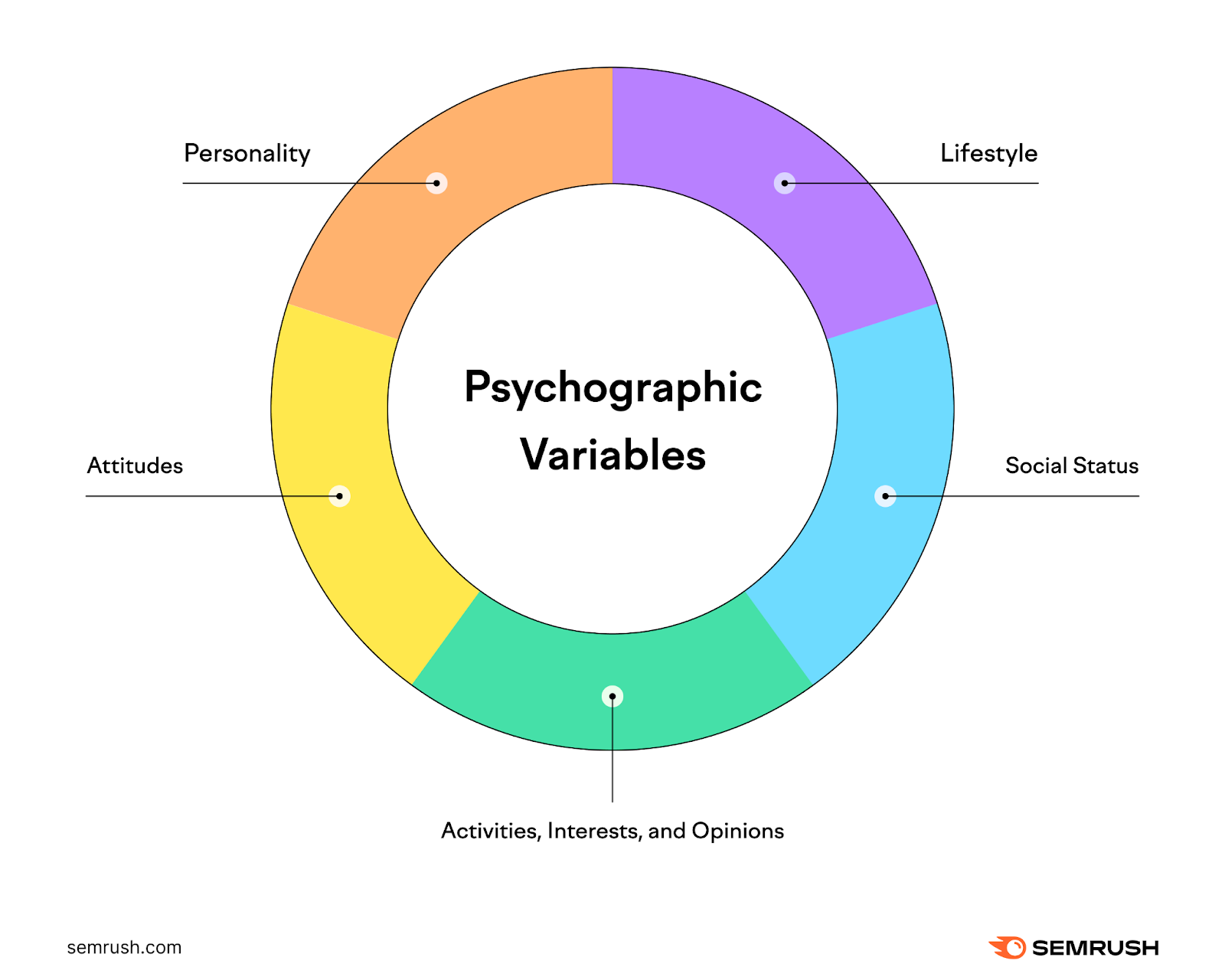
Psychographic segmentation delves into the psychological aspects of potential clients, including their lifestyles, values, attitudes, and aspirations, which are crucial in crafting messages that resonate on a personal level. For instance, individuals or couples who value family above all may view IVF as a vital step towards achieving their life goals. Understanding these personal values can help clinics tailor their communication, emphasising the fulfilment and joy that parenthood brings.
Moreover, understanding the emotional journey of prospective clients is essential. The desire to have a child can be filled with complex emotions, including hope, frustration, and sometimes despair, especially after unsuccessful attempts at conception. Recognizing these emotional states and motivations allows clinics to create empathetic marketing messages that acknowledge these feelings, offering support, understanding, and hope through their services.
An example of effective psychographic targeting could be sharing success stories of past patients who faced similar challenges but eventually succeeded through the clinic's help. This would demonstrate your clinic's success rate and build an emotional connection with potential clients, showing them that their dream of becoming parents is achievable.
Behavioural segmentation focuses on the actions and behaviours of potential clients related to fertility treatments. This includes their stage in the fertility journey, online search patterns, and responses to previous marketing efforts. By analysing these behaviours, clinics can identify where individuals are in their path to parenthood and tailor messages that meet them at their point of need.
For example, a couple just beginning to explore fertility treatments might be overwhelmed by the amount of information available and unsure where to start. Your clinic can target these individuals with educational content that simplifies the IVF process, outlines the first steps to take, and what to expect during initial consultations. This not only serves to inform but also to reduce anxiety and build trust between the potential clients and the clinic.
Conversely, for those who have been through multiple cycles of IVF or other fertility treatments without success, clinics might focus on advanced treatment options, the latest technological advancements in the field, or personalised treatment plans. Highlighting these options can rekindle hope and demonstrate the clinic's commitment to helping clients achieve their dreams of parenthood.
Behavioural segmentation also extends to online behaviour, such as search patterns and interaction with previous marketing efforts. Clinics can use this data to refine their marketing strategies, targeting individuals with content that matches their search interests or re-engaging those who have interacted with their website or social media platforms but haven't taken the next step.
Segmentation based on the technology use patterns
One innovative approach that IVF clinics can adopt, leveraging Technographic Segmentation, revolves around understanding and aligning their communication strategies with the specific digital behaviours and preferences of their target audience. For instance, a remarkable example involves the strategic use of social media platforms and online forums frequented by potential clients. A compelling case to consider is the partnership between a renowned IVF clinic and niche online communities or forums that cater specifically to individuals seeking fertility advice or sharing their IVF journeys.
By identifying and engaging with these platforms, your clinic can tailor its informational and marketing content to fit the unique context and needs of these communities. This strategy goes beyond mere presence on social media; it's about creating value through educational content, Q&A sessions, and real-life success stories that resonate with the audience's specific concerns and informational needs. This targeted approach enhances the clinic's visibility among potential clients and builds trust and credibility by providing valuable, contextually relevant information where the audience is already seeking advice and support.
How do you effectively communicate with your audience with the same needs?

A strategic approach that IVF clinics can adopt when implementing Needs-based Segmentation is to develop specialised treatment packages tailored to specific fertility challenges, such as PCOS, male factor infertility, or unexplained infertility. This strategy is exemplified by the creation of dedicated service lines within the clinic, each focusing on a particular fertility issue. For instance, a clinic might establish a comprehensive PCOS treatment program that not only offers medical interventions but also integrates nutritional counselling, lifestyle modification support, and stress management workshops specifically designed for individuals with PCOS.
This approach allows the clinic to not only address the medical aspects of fertility treatment but also to provide holistic support tailored to the unique needs of each segment. By doing so, the clinic can position itself as a leader in personalised fertility care, demonstrating a deep understanding of and commitment to addressing the diverse challenges faced by individuals and couples on their fertility journey. This strategy also facilitates more targeted and effective marketing efforts, enabling the clinic to communicate more directly and meaningfully with potential clients who are seeking specific solutions to their fertility challenges.
Furthermore, by offering these specialised treatment packages, the clinic can gather valuable data on the effectiveness of different treatment protocols for various conditions, thereby continually refining and improving their services. This focused approach not only enhances patient satisfaction and outcomes but also strengthens the clinic's reputation as a forward-thinking and patient-centred facility, ultimately attracting more clients who feel understood and well-cared-for.
Develop Specialised Treatment Programs: Create dedicated treatment programs for common fertility issues like PCOS, male factor infertility, and unexplained infertility. Tailor these programs with specific medical treatments, lifestyle interventions, and support systems designed to address the unique challenges associated with each condition.
Offer Holistic Support Services: Integrate holistic support services such as nutritional counselling, psychological support, and lifestyle modification workshops into each specialised program. This ensures a comprehensive approach to fertility care that addresses both the physical and emotional needs of patients.
Use Targeted Marketing: Employ targeted marketing strategies to reach individuals searching for solutions to specific fertility challenges. Utilise digital platforms, social media, and fertility forums to share success stories, informational content, and details about your specialised programs, directly appealing to those with the conditions you cater to.

About Bruno GavinoBruno Gavino is the CEO and partner of Codedesign, a digital marketing agency with a strong international presence. Based in Lisbon, Portugal, with offices in Boston, Singapore, and Manchester (UK) Codedesign has been recognized as one of the top interactive agencies and eCommerce agencies. Awarded Top B2B Company in Europe and Top B2C company in retail, Codedesign aims to foster personal relationships with clients and create a positive work environment for its team. He emphasizes the need for digital agencies to focus on data optimization and performance to meet the increasingly results-driven demands of clients. His experience in digital marketing, combined with a unique background that includes engineering and data, contributes to his effective and multifaceted leadership style. |

About CodedesignCodedesign is a digital marketing agency with a strong multicultural and international presence, offering expert services in digital marketing. Our digital agency in Lisbon, Boston, and Manchester enables us to provide market-ready strategies that suit a wide range of clients across the globe (both B2B and B2C). We specialize in creating impactful online experiences, focusing on making your digital presence strong and efficient. Our approach is straightforward and effective, ensuring that every client receives a personalized service that truly meets their needs. Our digital agency is committed to using the latest data and technology to help your business stand out. Whether you're looking to increase your online visibility, connect better with your audience, get more leads, or grow your online sales. For more information, read our Digital Strategy Blog or to start your journey with us, please feel free to contact us. |
CodeDesign is leading:
- Digital Agency
- Digital Marketing Agency
- Digital Ecommerce Agency
- Amazon Marketing Agency

Add comment ×